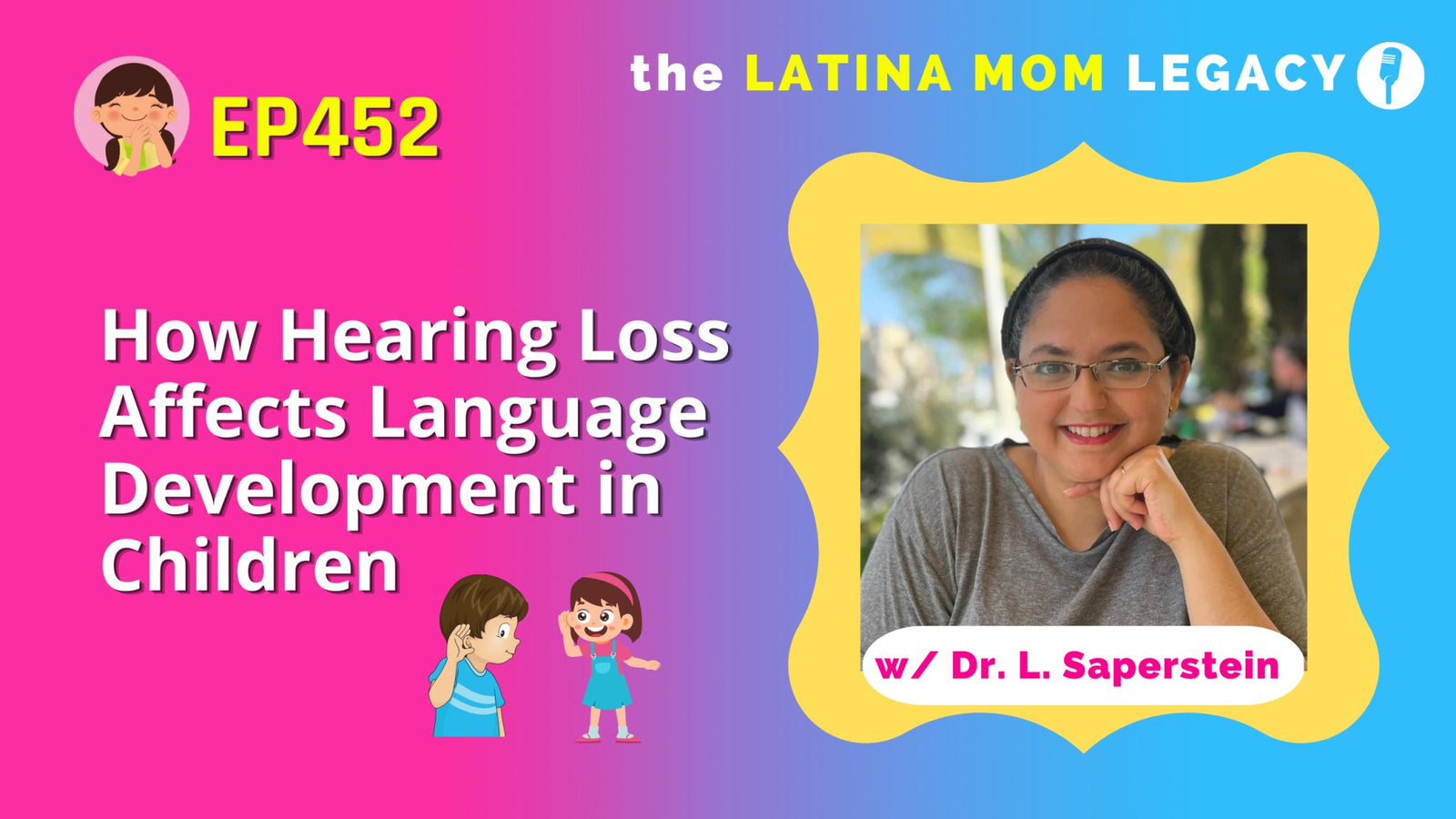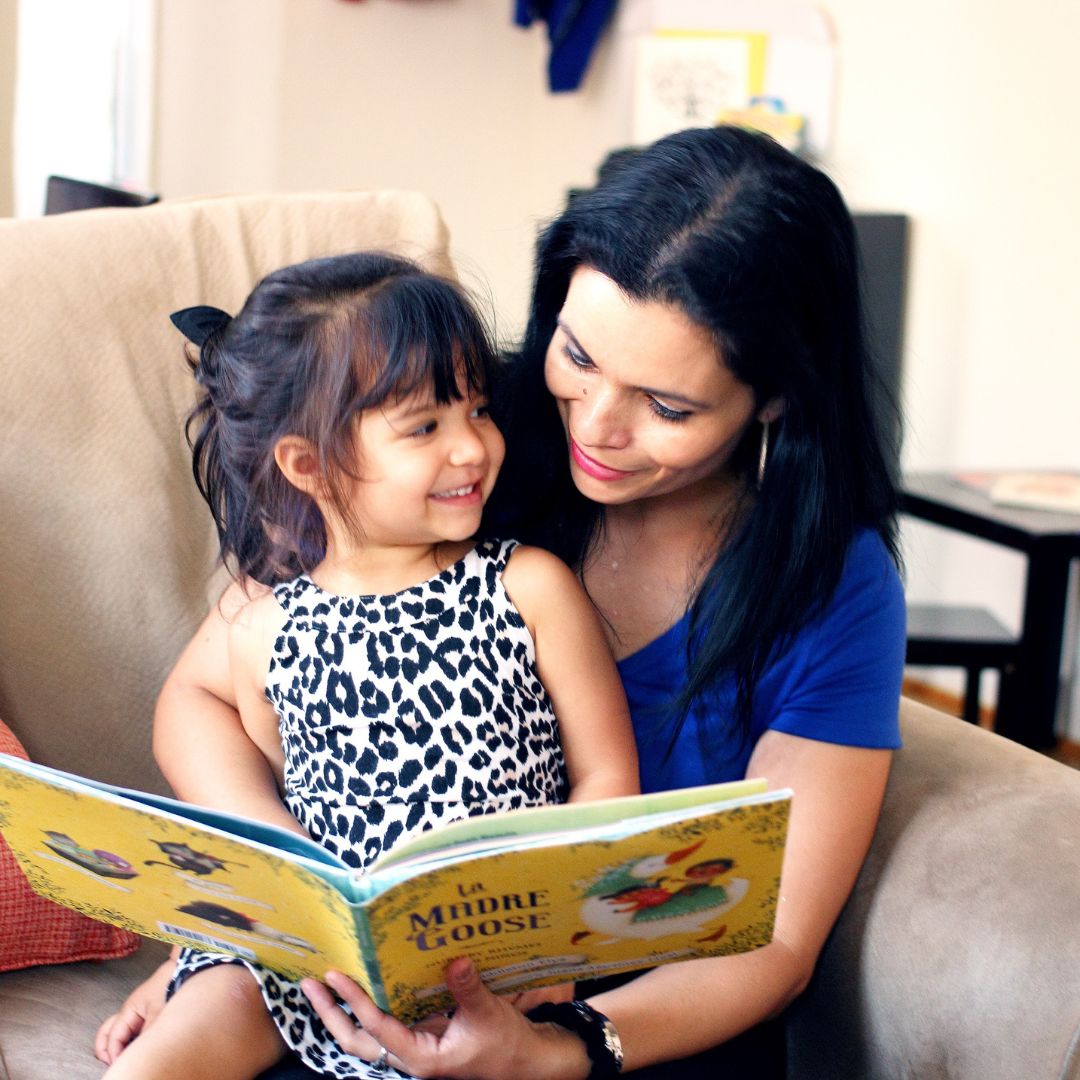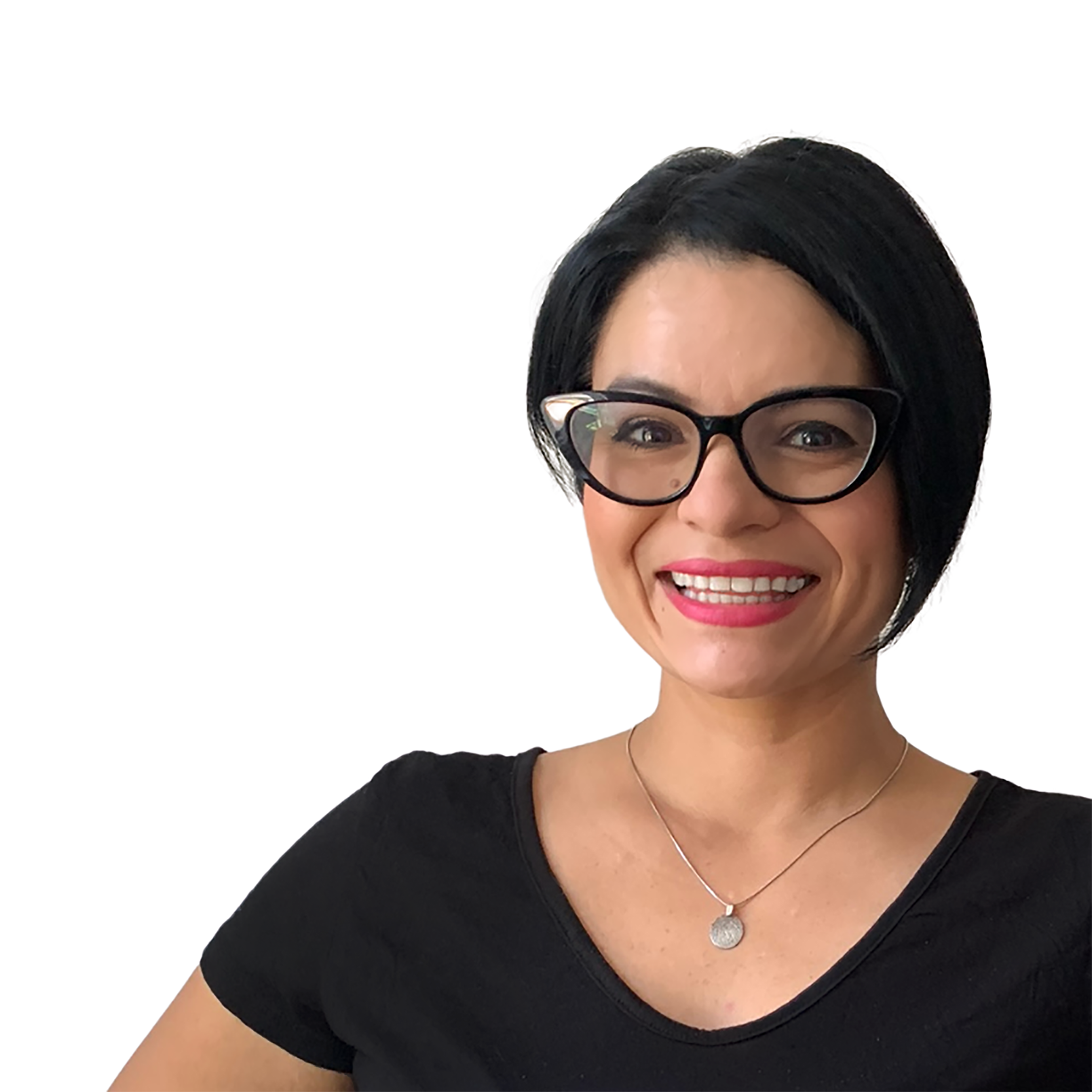
Did you know that experiencing hearing loss could be the reason why your child is disruptive? What should you do if you think your child is hard of hearing? In this episode, bilingual mom, audiologist, and host of the All About Audiology podcast Dr. Lilach Saperstein helps answer those questions.
Join us as we talk about hearing loss in children and how it affects language development. Learn about things to look for, whom to reach out to, and how you can encourage communication, no matter the language. Plus, we’ll talk about how she’s raising bilingual daughters, life in Israel, and her favorite dish to pass down, and it’s not Matzo Ball soup. Asi que no te lo pierdas!
About Dr. Lilach Saperstein

Dr. Lilach Saperstein is a globally recognized audiologist and parent coach, all the way from Israel. Dr. Saperstein is the host of the All About Audiology podcast which has been downloaded over 70,000 times, offering personal interviews related to audiology, communication, parenting, advocacy, and connection. She received her doctorate of audiology (Au.D.) at the CUNY Graduate Center in New York in 2017. Lilach lives in Israel with her husband where they are raising three bilingual daughters.
Show Notes & Takeaways:
Segment 1: On Raising Bilingual Daughters.
- Dr. Saperstein has personal interviews related to audiology, communication, parenting, advocacy, and connection on her podcast.
- She grew up in a bilingual home and had some demoralizing experiences due to language barriers.
- Dr. Saperstein's family spent time in South America, and some of her early words were in Spanish.
- She studied linguistics in college and was exposed to different cultures.
- Dr. Saperstein grew up in an isolated community and did not experience much adversity until she went to college.
- It is important to create a language-rich environment for children learning a new language, but it is equally important to know the child's temperament and circumstances.
- Every child is different, so there is no one-size-fits-all approach to raising a bilingual child. Parents should work with their child's natural abilities and their own strengths as a caregiver.
- Passing on a language also means passing on stories, legacies, and dramas, and it is essential to communicate a family's story and goals when raising a bilingual child.
Segment 2: On Hearing Loss in Children and Language Development
- An audiologist is a professional who works primarily with the ears, including hearing and balance issues, tinnitus, and sound processing challenges.
- An ear, nose, and throat (ENT) doctor is a physician who specializes in ear, nose, and throat surgeries and other medical problems in those areas. Audiologists are not physicians but work closely with them.
- If a parent suspects their child has a hearing problem, they should bring it up with a pediatrician and get tested if necessary. However, parents should also keep in mind that not all babies respond to sound in the same way and there is a normal progression to their skills.
- Hearing loss in children can be related to hereditary factors or infections, such as fluid in the ears, which is common up until age 4 or 5. About 90% of deaf children are born to hearing parents.
- Deafness is not the most common thing, but it occurs in about 1-3 babies out of 1000. When babies are born with hearing loss, it often comes as a shock to parents.
- Hearing loss varies in degree and type, some people may have difficulty hearing soft sounds but can hear loud sounds
- Auditory neuropathy is a rare form of hearing loss that affects the synchronization of sounds to the brain, causing hearing fluctuations
- Children with auditory neuropathy may experience emotional and social difficulties that could be misinterpreted as behavioral problems
- It's important to check for hearing issues in children who experience emotional or social difficulties before seeking mental health therapy
- Interrupting a conversation may have different reasons, such as impulse issues, anxiety, processing difficulties, or cultural norms.
- In some cultures, people talk over each other as a norm and it's not considered a problem.
- Hearing loss is a neutral term to describe the state of a person's hearing system, and it's important to be aware of the language used around it.
- Some people prefer the term "hard of hearing" instead of "hearing loss" as it doesn't ascribe a value to the person's hearing ability.
- "Deaf" is an umbrella term that includes all degrees of hearing loss, not just complete hearing loss.
- It's important to be sensitive to language and to learn and adapt as we go along to avoid discrimination.
- All About Audiology is a podcast for parents to share their stories and experiences with having a child with hearing issues, and to receive tips from professionals on related topics.
- Connecting with others who are going through the same situation, whether in-person or online, can be beneficial for parents of children with hearing issues.
Segment 3: On Growing up Jewish and Motherhood
- Take time for yourself to bring back peace, so you can show up for your children and be more present and patient.
- Reading to your kids is an important way to connect and develop skills, discuss the pictures, story, characters, colors, and words.
- Playing music and introducing your children to different types of music can have a positive effect on their development and learning.
- Dr. Saperstein's biggest struggle as a mom is keeping calm and collected.
- The best piece of advice she's received is to focus on the child in front of her, not the one in her head or in the future.
- Growing up Jewish, she felt pressure to be a certain kind of person, but has found space to discover who she truly is.
- Chicken is the traditional home dish she'd like to pass down to her daughters because it's simple and a family favorite.
- A home remedy she swears by is using hot water bottles or compresses for stomach aches.
- She wants to make people feel safe and comfortable around her.
Resources
Host, Janny Perez is a Latina mom raising a multilingual and multicultural daughter to be proud of her roots.
Join her as she interviews Latina moms, and language & heritage experts and motivates you to stay on your bilingual parenting journey. Grab a cafecito, we’re talking bilingualism, growing up Latina, and tradiciones.
The show alternates between interviews and solo shows. Tuesdays feature guest interviews of powerful Latina moms from around the world as they share their bilingual parenting tips, how they're impacting the Latinx community and a fast round of questions where guests share their favorites about their Hispanic heritage.
If you found the blog post useful and want to see additional resources to raise bilingual Spanish children connected to their roots, see how Janny, the Latina Mom Legacy podcast host can help with more resources.
















Dejar un comentario